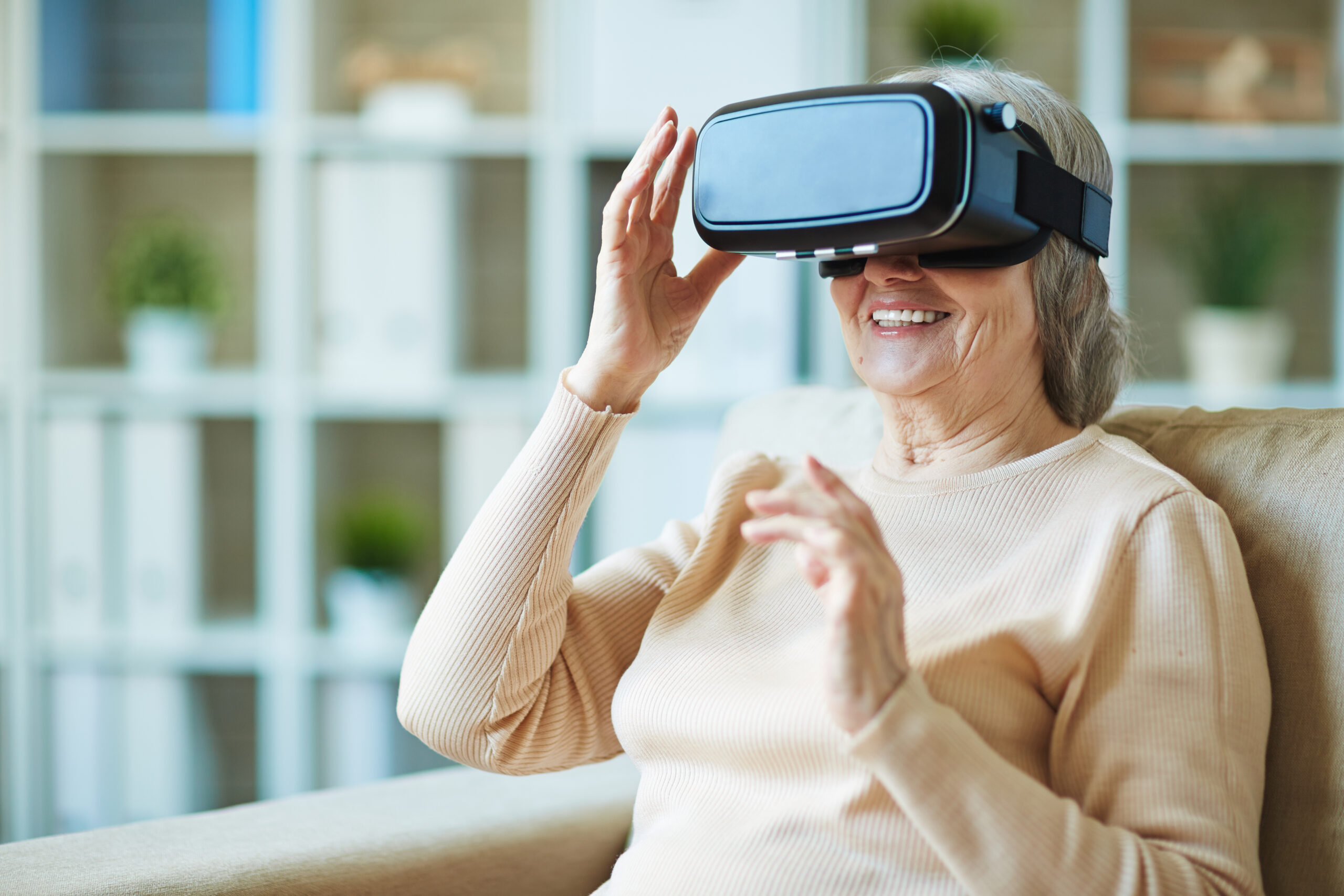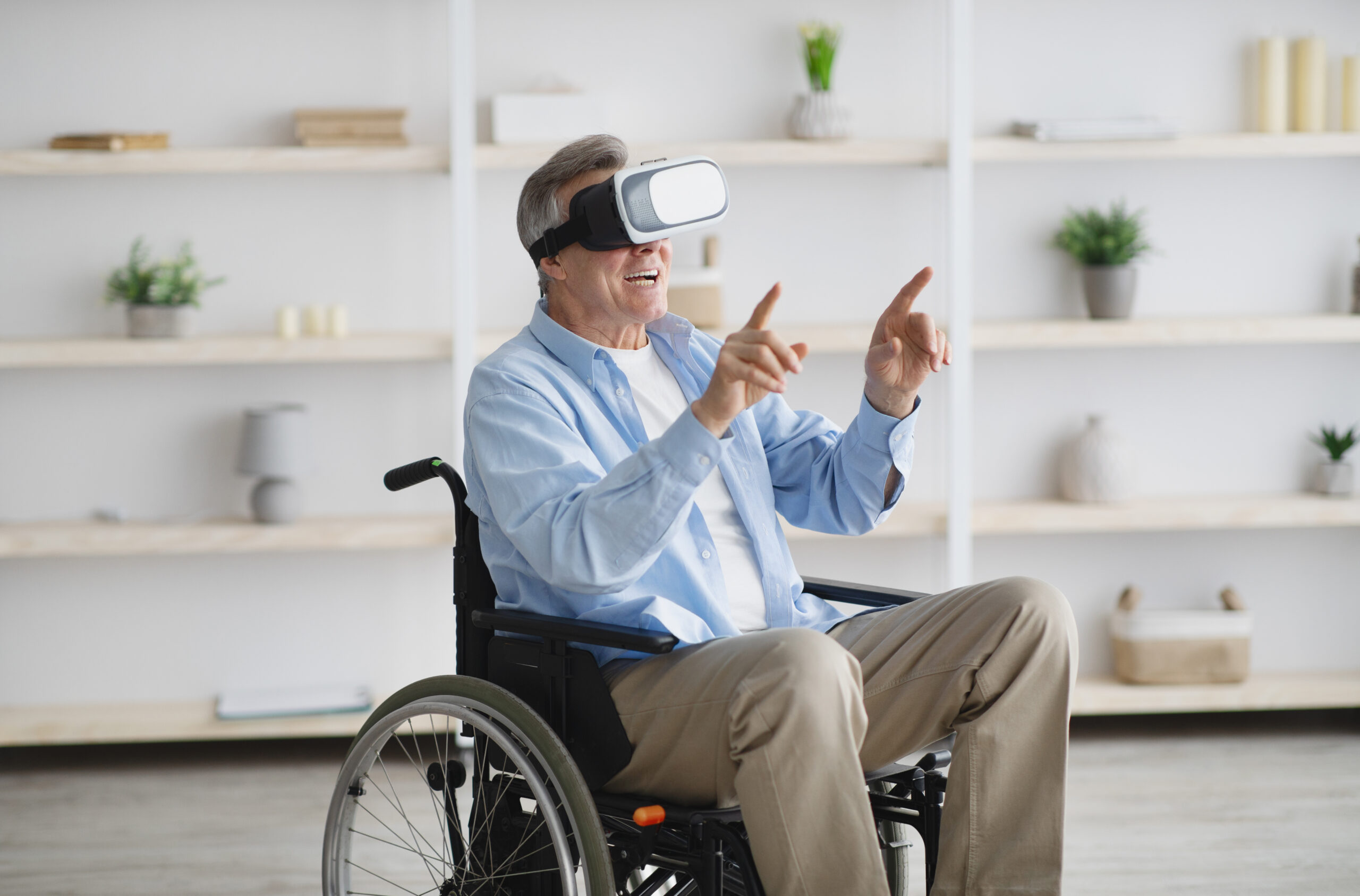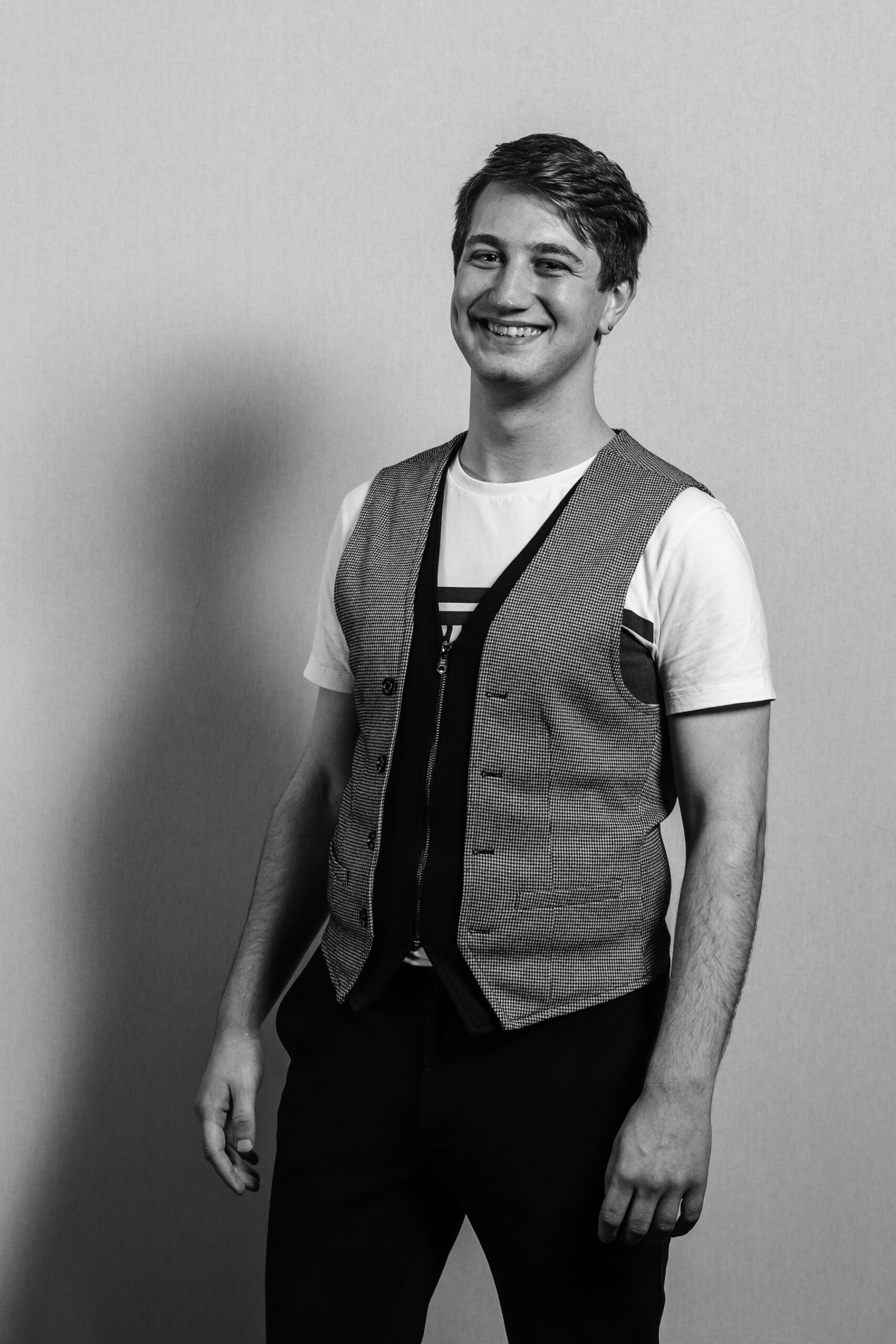
Technology & development
Virtual training for people with dementia
Virtual reality could help to promote movement and evoke positive feelings in dementia patients in future. As part of the research and development project “VR4 Mind & Motion”, dementia patients train their mobility and memory using 360-degree videos. This unique project was launched by AAL AUSTRIA, the innovation platform for intelligent assistance in everyday life. As sponsorship partners, THERA-Trainer provides the ergometers for mobility training, Netural develops the VR software and Volkshilfe makes it possible to conduct the study and provides the participants accordingly.
The rising life expectancy in our society will require solutions for mobility in all situations and independence into old age. The demographic trend and the aging population are also accompanied by age-related diseases such as dementia. Global statistics show that around 50 million people were suffering from some form of dementia in 2017, and the number is rising. In 2030, the number is expected to reach 75 million, and in 2050, around 130 million.
Dementia is the general umbrella term for pathological changes in the brain that are mostly age-related. The disease is characterised by a progressive loss of mental functions such as thinking, orientation and learning ability. In connection with this, emotional and social skills also decrease in the course of the disease.
The AAL AUSTRIA working group looks at the challenges associated with the disease from different perspectives. New information and communication technologies enable completely new concepts for coping with the demands on the health system and to preserve quality of life high even in old age. The use of virtual reality also plays a role here.
The aim of the project “VR4 Mind & Motion” is to develop a VR-based training system for people with dementia. This opens a digital window into the virtual world for those affected. The basic idea is that those affected experience a forest or meadow landscape during physical activity on the ergometer, for example, using 360° video recordings. The focus is on evoking positive feelings. The dementia patients should relax and at the same time be motivated to be physically active. In this way, conventional therapy approaches could be expanded in the future and the burden on caregivers and relatives reduced.
From a research perspective, the technology has the potential to significantly improve the quality of life of people with dementia. Immersion in a virtual world can bring back memories from the past, reduce anxiety and improve social interaction with caregivers and relatives.

Some research already exists that deals with the use of virtual reality in dementia. A literature review by Garcia-Betances et al. (2014), for example, explores how virtual reality affects older people and how technology can support family members and caregivers in terms of improving quality of life. A further review by Garcia-Betances et al. (2015) deals with the different types of virtual reality and their possible applications for diagnostic and therapeutic purposes. The results show that VR applications can support cognitive training in older people with dementia. A 2016 research project at Aalborg University in Denmark also showed that virtual reality technologies could motivate female residents in care facilities to exercise more (Jon Ram Bruun-Pedersen et al. 2016).
The “VR4 Mind & Motion” project ties in with the current state of research. A pilot clinical study is currently evaluating aspects of user satisfaction as well as behavioural changes and improvements in physical condition. In addition to interviews, data from measurement procedures, such as heart variability measurements and cognitive tests, is collected, analysed and evaluated for this purpose.
Volkshilfe Gesundheits- und Soziale Dienste GmbH, Netural GmbH, medical technology consulting company R’n’B Consulting GmbH, film production company amago GmbH and LIFEtool gemeinnützige GmbH are also participating in the pilot project.
As external supporters, SCHILLER Handelsgesellschaft m.b.H. provided the HRV measuring devices and THERA-Trainer the ergometer.
Interview:
A first trial run with a total of 8 people from the Volkshilfe Regenbogen dementia day centre in Linz, Austria has already been successfully completed. Participants first explored a 360-degree mountain landscape without any physical activity. What insights did you gain from the preliminary study?
People seem very interested in the 360° videos and talk about their memories from the past or their home. Above all, you often hear stories about frequently visited places and hikes.[Netural GmbH]

“People seem very interested in the 360° videos”
Sebastian Mayer, Netural GmbH
To what extent do older people with dementia have reservations about immersing themselves in 360-degree environments via VR experiences?
At first glance, the new technology is something new for them, and they are quite sceptical about it to start with. However, we are noticing that many older people are curious about VR technology and also want to give it a try. A picture gallery or a video player is a good way to start. [Netural GmbH]
What influence does the mobility training have on the effects of the intervention?
Through the pilot study, we have already established that the test subjects can remember details from virtual reality even one week after our training combination of VR and ergometer. They mention objects (e.g. a swan) they have seen in a past VR video in the Nuremberg Age Inventory test (a test in which the participants have to remember pictures). Furthermore, we found that some people need a spoken guide to the virtual reality, but others dive directly into this world to explore it for themselves. The effects of the training will be determined after completion of the pilot study using questionnaires, evaluation of the HRV measurement, the NAI test and the 10-metre walking test. Suspected negative side effects such as dizziness, motion sickness or nausea did not occur at all in 9 participants with a training time of 20 minutes. [R’n’B Consulting GmbH]

“Some people need a spoken guide to the virtual reality”
Cornelia Hoflehner, R‘n‘B Consulting GmbH

“The physical training has positive effects on the cognitive abilities of the participants.”
Sophie Müller-Wipperfürth,
Volkshilfe Gesundheits- und Soziale Dienste GmbH
The VR experience focuses on evoking positive feelings in dementia patients. What influence does this have on the experience and behaviour of these people?
Showing people places awakens memories of the past. The combination of VR and ergometer training for people with dementia shows that images and videos can awaken memories. They talk about their experiences, report on what they have experienced and can sometimes remember details. Especially places from their immediate surroundings awaken more memories and emotions and thus lead them to talk more about the past. [Netural GmbH]
What influence does physical exercise have on the cognitive and mental functions of older people with dementia?
The study shows that physical training has positive effects on the cognitive abilities of the participants. This is shown on the one hand by the fact that the test persons, who are regular visitors to the Volkshilfe Regenbogen day centre, already tell enthusiastic and extremely lively stories about their lives during the training, and on the other hand also by an increase in performance in cognitive tests, which are carried out before and after the training. However, an exact result regarding an increase in cognitive performance is still to be evaluated – after the clinical study has been completed – by our investigator Dr Spinka and R’n’B Consulting GmbH. [Volkshilfe Gesundheits- und Soziale Dienste GmbH]

To what extent does the positive VR experience lead to an increase in training motivation?
The training support by means of VR technology manages to make the ergometer training exciting. Participants find themselves on a virtual journey through different areas such as lakeshores, country lanes, etc. On the one hand, this makes the training less one-dimensional, while on the other hand, it awakens various memories of earlier experiences and hiking or cycling trips among the participants. These positive associations are reflected in an increased motivation to exercise, as it was very easy for all test subjects to persevere for 20 minutes on the THERA-Trainer; in addition, all without exception were enthusiastic about the VR-supported experience. [Volkshilfe Gesundheits- und Soziale Dienste GmbH]
What are the chances of a nationwide implementation of VR-based training in dementia?
Whether VR is used in public institutions depends on several factors. On the one hand, everyone must be prepared to familiarise themselves with this new technology and be open to it. Caregiving staff or those providing support for its use need to get to grips with this matter and show interest in it. On the other hand, money plays an essential role. The purchase cost of the headsets is not the only consideration when incorporating VR; the time required to support its use also comes at a cost and must be considered at the time of purchase. [Netural GmbH]
Correspondence address:
Working group leader Uli Waibel, General secretary AAL AUSTRIA – Innovation platform for intelligent assistance in everyday life uli.waibel(at)aal.at
Literature:
García-Betances RI, Jiménez-Mixco V, Arredondo MT, Cabrera-Umpiérrez MF. Using virtual reality for cognitive training of the elderly. Am J Alzheimers Dis Other Demen. 2015 Feb;30(1):49-54. doi: 10.1177/1533317514545866. Epub 2014 Aug 7. PMID: 25107931.
García-Betances RI, Arredondo Waldmeyer MT, Fico G, Cabrera-Umpiérrez MF. A succinct overview of virtual reality technology use in Alzheimer’s disease. Front Aging Neurosci. 2015 May 12;7:80. doi: 10.3389/fnagi.2015.00080. Erratum in: Front Aging Neurosci. 2015;7:235. PMID: 26029101; PMCID: PMC4428215.
Bruun-Pedersen J, Serafin S, Busk Kofoed L. Simulating Nature for Elderly Users – A Design Approach for Recreational Virtual Environments. Conference Paper · October 2015 DOI: 10.1109/CIT/IUCC/DASC/PICOM.2015.235
Jakob Tiebel
Related contents
Find related exciting contents in our media library.
Meet our specialists.
Are you interested in our solutions? Schedule a meeting with a Consultant to talk through your strategy and understand how TEHRA-Trainer can help you to advance rehabilitation.